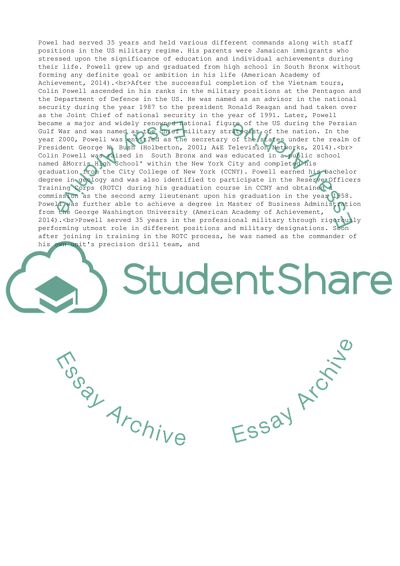Cite this document
(General Colin Powell Term Paper Example | Topics and Well Written Essays - 4500 words, n.d.)
General Colin Powell Term Paper Example | Topics and Well Written Essays - 4500 words. https://studentshare.org/management/1814098-general-colin-powell
General Colin Powell Term Paper Example | Topics and Well Written Essays - 4500 words. https://studentshare.org/management/1814098-general-colin-powell
(General Colin Powell Term Paper Example | Topics and Well Written Essays - 4500 Words)
General Colin Powell Term Paper Example | Topics and Well Written Essays - 4500 Words. https://studentshare.org/management/1814098-general-colin-powell.
General Colin Powell Term Paper Example | Topics and Well Written Essays - 4500 Words. https://studentshare.org/management/1814098-general-colin-powell.
“General Colin Powell Term Paper Example | Topics and Well Written Essays - 4500 Words”. https://studentshare.org/management/1814098-general-colin-powell.


